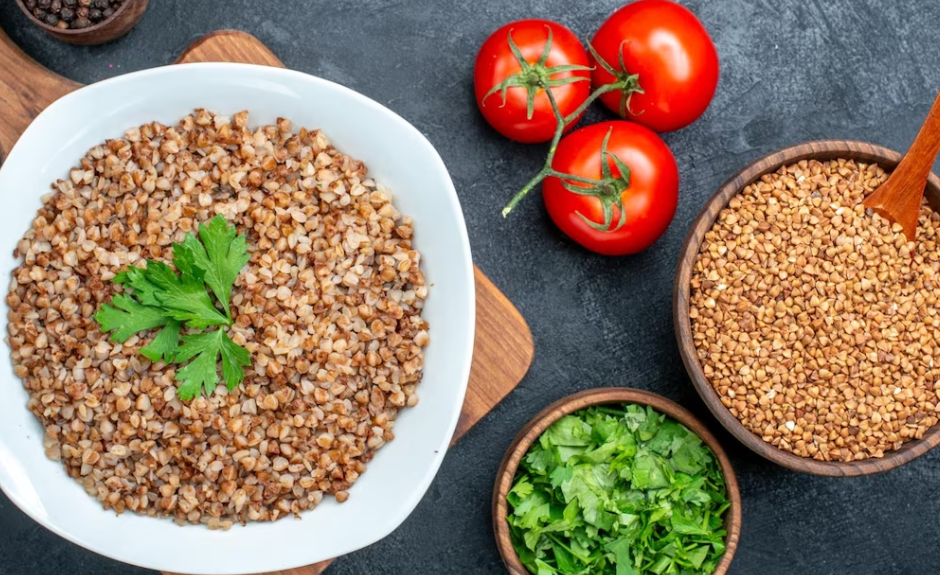What are you thinking about? Is watermelon healthy or not? Explore its benefits now.
What are you thinking about? Is watermelon healthy or not? Watermelon is widely known for its ability to cool down the body on a hot day, but this nutritious fruit offers much more than just temperature regulation.
In addition to keeping the body cool, watermelon can assist in managing diabetes and combat harmful free radicals that can increase the risk of chronic illnesses.
It also helps reduce the chances of heart disease and asthma and promotes weight loss. Watermelon contributes to overall health with only 45 calories and is rich in vitamins C and A.
The most remarkable aspect of watermelon is its high water content, making up 92% of the fruit, which helps stay hydrated, control appetite, and provide a sense of satiety.

Exploring the Fascinating World of Watermelon
Watermelon is a low-calorie food with water content, making it an excellent choice for those looking to maintain a healthy diet. Here are some key facts to consider:
- Worldwide, there are approximately 1200 different types of watermelons.
- For 40 years, watermelons have been boxed in Japan.
- In the United States, watermelon is the most widely consumed fruit.
- With just forty calories per cup, watermelon is a low-calorie food choice.
- Certain watermelon varieties must be exposed to 130 days of heat to reach maturity.
- Watermelon has anti-inflammatory properties, helping to reduce inflammation in the body.
- It is also cholesterol-free, making it an effective agent for weight loss.
- In ancient Egypt, watermelons were placed in tombs as a symbol of nourishment for the afterlife.
- During the 13th century, watermelons were cultivated in Europe, and in China, they were grown during the 10th century.
Nutritional Facts of Watermelon: A Sweet and Nutritious Superfood
Watermelon is a nutritious, low-calorie fruit high in hydration and micronutrients. One serving of watermelon, about 150 grams or one cup, provides 0.6 grams of fiber, 11.5 grams of carbohydrates (9 grams of sugars), and approximately 1g of protein. Its real health benefits come from its vitamin content, including 5% of the daily recommended value of Vitamin A and 14% of Vitamin C. Additionally, watermelon contains 4% of the daily recommended intake of Potassium and Magnesium.

The Health Benefits of Watermelon: A Nutritional Powerhouse
Every year on August 3rd, watermelon day is celebrated. This sweet and juicy fruit is perfect for picnics, backyard parties, and more. In addition to its delicious taste, watermelon has various health benefits that can positively impact one’s well-being. Here are a few of the many health advantages of consuming watermelon:
1. Keeps you hydrated
Watermelon is made up of 92 percent water, making it a low-calorie food with many volumes. This high water content can help keep you hydrated, reducing the risk of dehydration and contributing to weight loss.
Maintaining hydration can also prevent dry mouth, promote cardiovascular health, and keep your body cool during hot summer days. Additionally, consuming watermelon can help cleanse the body and maintain healthy skin. Simply incorporating one cup of watermelon into your daily diet can provide numerous health benefits.
2. Blood sugar management
The juicy watermelon fruit helps the kidneys convert L-citrulline, an amino acid, into L-arginine, another amino acid. These two amino acids have been shown to protect against diabetes. L-arginine, which is found in watermelon, is medically important for regulating glucose metabolism & insulin in the body.
3. Helps in weight loss
If you’re seeking a natural way to lose weight, be sure to include watermelon in your diet. As a fruit made up primarily of water, it provides a sense of fullness, reducing the temptation to snack on unhealthy foods. If you’re looking to shed some pounds, make a conscious effort to add this juicy fruit to your weight loss regimen.
4. Prevent cardiovascular disease
Did you know that watermelons contain lycopene, which gives the fruit a reddish color and is also present in tomatoes? However, watermelons have a higher concentration of lycopene compared to tomatoes.
This substance has numerous health benefits, including the reduction of cholesterol levels and a decrease in the risk of heart disease. To reap these benefits, all you have to do is eat a cup of watermelon daily.
5. Decreases severity of Asthma
Watermelon is a rich source of Vitamin C, which can combat asthma and its associated symptoms. By consuming just one cup of watermelon daily, you can help mitigate the severity of asthma. Furthermore, individuals with low levels of Vitamin C often experience increased asthma symptoms.
Hence, incorporating watermelon into your diet can be especially beneficial if you are struggling with the condition. It is worth noting that watermelon contains approximately forty percent of Vitamin C, making it an excellent choice for asthmatics.
6. Reduces dental problems
Preventing periodontal disease, a condition that affects 25 percent of the global population, can be as simple as incorporating a cup of watermelon into your daily diet. This disease is characterized by tooth loss and infection and has links to other heart diseases.
The key ingredient that helps reduce its effects is Vitamin C. Adding watermelon to your diet is an easy way to obtain the necessary Vitamin C and protect yourself from the negative effects of periodontal disease.
7. Fights inflammation
Inflammation is one of the most prevalent forms of inflammatory diseases that people are currently facing, and it is the root cause of several serious conditions, such as heart disease, fibromyalgia, and cancer. Dealing with inflammation is crucial as it has far-reaching effects on one’s health.
A simple way to combat this type of inflammation is by incorporating watermelon into your daily diet. This can be a straightforward and effective way to promote overall health and reduce the risk of these diseases.

8. Good for nerve function
Watermelon is abundant in potassium, which plays a crucial role in regulating nerve function by facilitating electrical impulses & messages throughout the body. It is important to note that low levels of potassium can lead to numbness and tingling.
If you are experiencing leg cramps, it may be a sign of low potassium levels in your body. A simple solution to this issue is to drink a glass of watermelon juice, which is an excellent source of potassium.
Wrap Up!
Summer is the perfect time to enjoy a refreshing glass of cold watermelon juice or a delicious salad made from it. This fruit is not only delicious, but it also provides numerous health benefits, making it an effective tool for weight loss if incorporated into your daily diet. However, it’s important to be aware that excessive consumption of watermelon can lead to some negative effects.
Checkout the healthy water melon recipes here: The Perfect Summer Treat: Healthy Watermelon Recipes for a Juicy Taste










